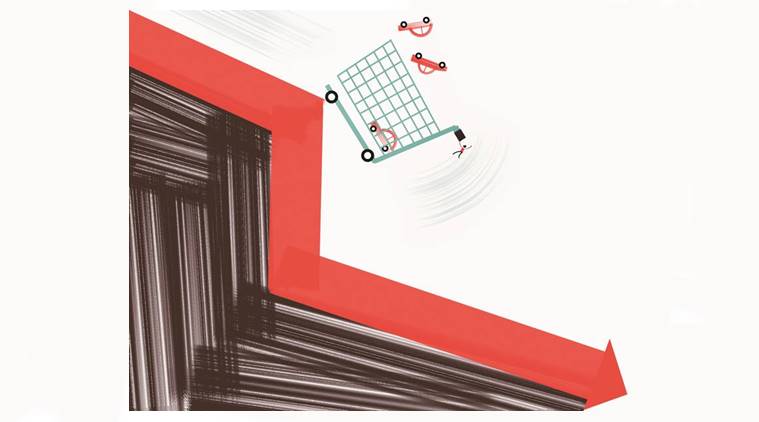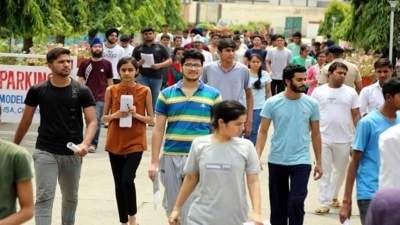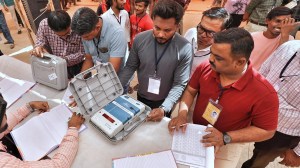- India
- International
Just blame it on millennials: They are investing in experiences, not consumption and commodities
Indian millennials had been handed a political bonanza: Two terms of Modi, a leader they adore at home and in Houston; a muscular post-Article 370 India, which seems to have left a mark on relatively few millennial consciences; and demonetisation, a bad idea then, worse idea now, but popular nevertheless with the demographic.
 Speaking of disposable income, millennials don’t seem to have much of it. While those social media companies give you stuff for free as long as you leave them your data, companies that make real things insist on being paid. (C R Sasikumar)
Speaking of disposable income, millennials don’t seem to have much of it. While those social media companies give you stuff for free as long as you leave them your data, companies that make real things insist on being paid. (C R Sasikumar)
“The automobile and components industry has been affected by BS6 and the mindsets of millennials, who now prefer to have Ola and Uber rather than committing to buying an automobile” — Finance Minister, Nirmala Sitharaman explaining why the Indian economy is in so much trouble.
“Today, I have the honour to introduce you to my family” — Prime Minister Narendra Modi to US President Trump in Houston, referring to the US Indian diaspora, disproportionately comprised of millennials.
Oh, those millennials. They were supposed to be Midnight’s Grandchildren, who had shoved all vestiges of their parents’ Gandhian guilt and Nehruvian socialism into history’s cluttered closet. They were meant to represent the consumerist, urbanising, digitally exploding India. They were the embodiment of what McKinsey had — in an early fit of enthusiasm about the emerging Indian middle-class — called the “bird of gold.”
Indian millennials had been handed a political bonanza: Two terms of Modi, a leader they adore at home and in Houston; a muscular post-Article 370 India, which seems to have left a mark on relatively few millennial consciences; and demonetisation, a bad idea then, worse idea now, but popular nevertheless with the demographic. This privileged class has been handed an India with streaming video, teeming cities and gleaming malls. All that was asked of them was to fulfill that promise of gluttonous gratification. Is it really that difficult to just go out and buy a car and join those teeming millions on clogged roads across India? Is it not their patriotic responsibility? It turns out millennials are too busy tracking how many minutes it will take for their Uber to wend its way so they can settle comfortably into the so-called “sharing” economy — in other words, an economy that consumes less stuff. It all seems like a frightening return to Gandhianism.
Finance Minister Sitharaman, of course, called a spade a spade; and since they are the Prime Minister’s “family”, I suppose it is okay to be honest about family members. There are three dreadful ways in which millennials are killing the economy: they are marrying late; they spend on experiences rather than on manufactured products; they are jobless or can’t seem to get jobs paying decent salaries.
Consider each in turn.
Marriage and milestones beyond it, such as having children — besides myriad other benefits — translate into greater engagement with the economy. The very act of marriage is accompanied by shopping for exorbitantly-priced products. If gold buying is one barometer, we are in trouble, thanks to these millennials. According to the World Gold Council, Indian millennials are buying less gold than their predecessors. Even millennial-friendly innovations, such as “digital gold”, being pushed by the likes of Google, aren’t helping.

A key culprit is, clearly, the marriage-averse millennial. According to the dating site, OKCupid, Indian millennials don’t think marriage is necessary for a serious relationship to be classified as successful or happy. Of course, Indian millennials are mirroring trends elsewhere. The move away from “getting settled” (as they used to say back in the good old days) is a global phenomenon. In the US, millennials are paying fewer visits to supermarkets because of these misguided unsettling habits.
Indian millennials, of course, share another thing in common with their peers elsewhere. More than any generation preceding them, they have grown up with an awareness of the mobile phone and the internet. Their digital lives are lived by learning about, sorting and sampling a string of “experiences”, such as entertainment, food or travel. Moreover, Indian millennials are the largest demographic block of social media users in the country. Social media is, of course, a beast that must be fed with shares, posts, links and likes. What this means is that millennials are steering disposable income towards “shareable” experiences.
You can imagine the impact on the GDP. For one, experiences are bought in bite-size pieces and may contribute less than a big product purchase. Also, these experiences are more service oriented and do little to help with growing the manufacturing sector. Finally, feeding the social media beast is time-consuming. It is mighty inconvenient to update your posts sitting behind a steering wheel; another reason to get the Uberwallah to do the driving.
Speaking of disposable income, millennials don’t seem to have much of it. While those social media companies give you stuff for free as long as you leave them your data, companies that make real things insist on being paid. This can prove to be a serious hindrance to economic participation since India’s millennials don’t have the jobs they were promised by the head of their family, Prime Minister Modi. Even the ones that do have jobs, don’t earn enough.
Joblessness is at a 45-year high and millennials are bearing the brunt of it. The auto sector, which employs 3.5 crore, has laid off 3 lakh, with another 10 lakh jobs at risk. And it is not just the auto sector, of course. The real estate sector anticipates one lakh jobs to disappear over the next few months. Medium- and small-scale industries, the biggest job creators in the past four years, were supposed to deliver another crore jobs in the coming five years, but they are stalling because of a demand slowdown and a liquidity crunch. Jobs are being cut across textiles, diamond-cutting, consumer goods in what is deemed the “worst slowdown” in a decade, with no relief in sight. Even if the economy climbs back up, less than 5 per cent of the workforce has the necessary formal training, which means that even if the need exists, the jobs may not be filled.
Moreover, the Periodic Labour Force Survey suggests a wages crisis. Seventy five per cent of regular workers earn less than Rs 20,000 a month, with millennials comprising almost 50 per cent of the workforce. It is worth noting that India at 21.7 per cent lags far behind other emerging economies, such as China (53.1 per cent), Brazil (67.7 per cent), Russia (93.4 per cent) and South Africa (84.8 per cent) in the share of salaried jobs. This sorry state should explain why so few of them are rushing to buy an automobile.
Sitharaman would be well served by sparing the millennials and inquiring why the economy isn’t delivering jobs, skills and better pay that Modi promised. But that would require deeper introspection and the tedious job of formulating and implementing policies for job-creation. Somebody has to own — and fix — the economy. Maybe the finance ministry could try that for a change. Till then, just let Modiji’s millennial family members call their wretched Ubers for now.
This article first appeared in the October 10, 2019 print edition under the title ‘Just blame it on millennials’.
The writer is Dean of Global Business at The Fletcher School at Tufts University, founding executive director of Fletcher’s Institute for Business in the Global Context and a non-resident senior fellow of Brookings India
40 Years Ago
EXPRESS OPINION
More Explained
Apr 18: Latest News
- 01
- 02
- 03
- 04
- 05









































